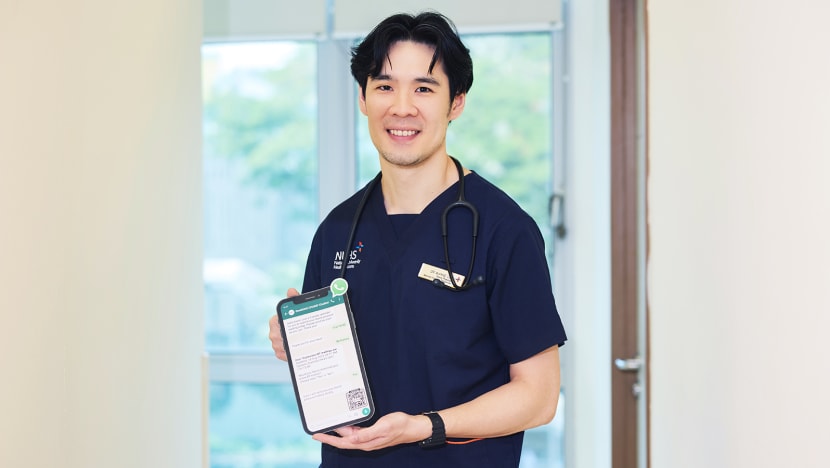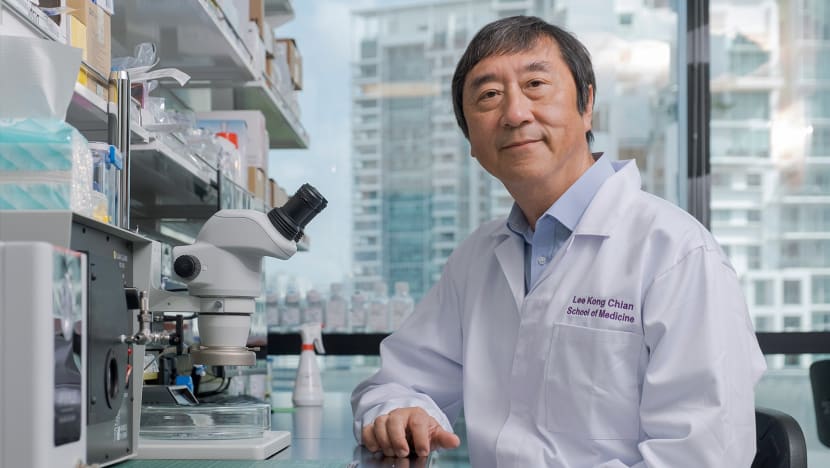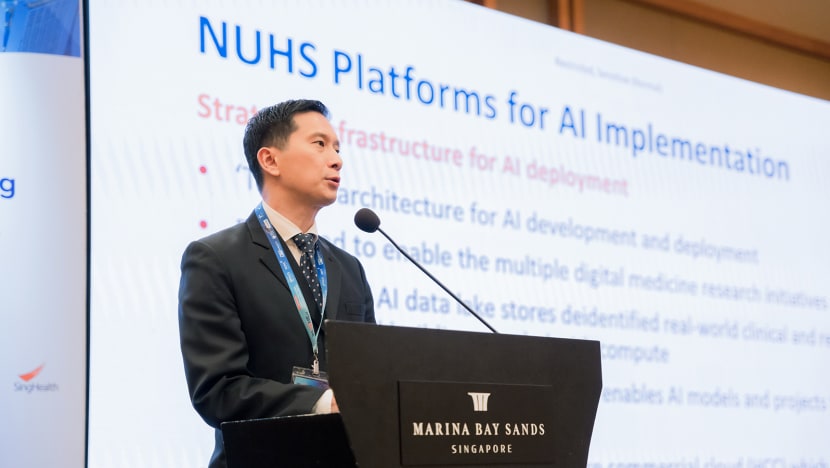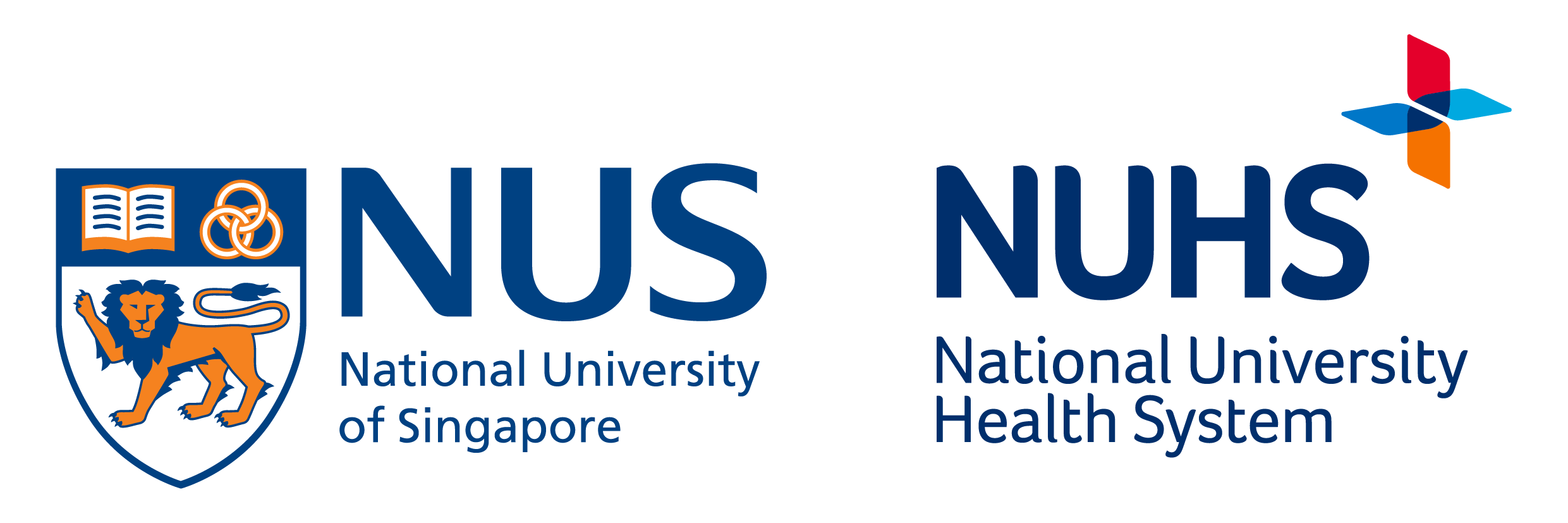Forgetting to measure your blood pressure? CHAMP, the population-based CHronic diseAse Management Programme chatbot, is here to help, sending daily reminders to keep your health on track. Featured at the IMAGINE AI health tech conference in December 2024, this virtual companion shows how artificial intelligence (AI) is transforming healthcare delivery in Singapore.
Tools like CHAMP enhance patient care by streamlining processes and enabling patients to manage their health safely and easily. The biennial event also showcased advancements such as an ethics checklist for using generative AI in medical practice – reflecting the growing trust in the technology to improve patient outcomes.
Experts at the IMAGINE AI event in December 2024 explored how artificial intelligence is reshaping medicine and revolutionising healthcare delivery.
These innovations signal a future in which AI becomes an integral part of healthcare, delivering personalised, proactive support for better health management.
The event was organised by Singapore’s three healthcare clusters, National University Health System (NUHS), SingHealth and National Healthcare Group; three medical schools, the National University of Singapore (NUS) Yong Loo Lin School Of Medicine, the Lee Kong Chian School of Medicine at Nanyang Technological University, Singapore (NTU Singapore) and Duke-NUS Medical School; as well as the NUS Saw Swee Hock School of Public Health. Mr Lew Chuen Hong, chief executive of the Infocomm Media Development Authority, was the guest of honour.
Adjunct Professor Ngiam Kee Yuan, who heads the Academic Informatics Office at NUHS and the Division of Biomedical Informatics at NUS Yong Loo Lin School of Medicine, described the event as a platform for collaboration. “IMAGINE AI 2024 brought together healthcare practitioners and AI experts to cross-pollinate ideas on healthcare AI use cases,” he said. “International experts also shared inspiring use cases and new concepts that may be adapted for use in healthcare AI.”
He added that while advanced supercomputers process vast amounts of data, “the real stars of the show” are the people turning raw data and computing power into practical solutions. “These talented individuals are finding new ways to use AI, from helping us discover new medicines to making our hospitals smarter and more efficient,” he said.
The IMAGINE AI Datathon, held as part of the IMAGINE AI health tech conference, celebrated teams of students and researchers who presented AI-driven solutions to address real-world healthcare challenges.
TRANSFORMING CHRONIC DISEASE MANAGEMENT WITH CHAMP
The CHAMP chatbot has been helping patients manage their blood pressure more effectively since its launch by NUHS in June 2023. Easy and intuitive to use, it allows patients to share their blood pressure readings with their medical team via WhatsApp. The care team can then monitor trends in vital signs and detect abnormalities, facilitating timely interventions.
To date, more than 10,000 patients, mostly aged 60 and above, have enrolled in CHAMP. The chatbot integrates AI and automated support for chronic disease management, thus reducing the need for resource-intensive monitoring at a population level. Doctors at all seven polyclinics at National University Polyclinics (NUP) and general practitioners in the primary care networks in western Singapore have been actively promoting CHAMP to their patients.

“Our analysis of 3,000 patients enrolled in CHAMP showed that their average systolic blood pressure dropped by 5mmHg to 10mmHg, corresponding to a 10 per cent reduced risk of cardiovascular events such as heart attacks and strokes,” said Dr Wayne Han Lee, assistant group chief technology officer at NUHS.
In addition to blood pressure and heart rate readings, patients may soon be able to input blood sugar readings and other health data into the chatbot. “Patients can expect more features from the chatbot in 2025, such as regular lifestyle nudges specific to a patient’s disease profile and a meal-logging challenge, where they can receive personalised dietary recommendations to improve their health and manage chronic conditions,” said Dr Lee, who is also an associate consultant at NUP.
One of his patients, Madam Grace Lim, 76, has put the chatbot to good use. Previously, she often forgot to monitor her blood pressure. Introduced to CHAMP by Dr Lee, the retired teacher and mother of two has now incorporated the chatbot into her daily routine.
Each morning, after breakfast and taking her medication, she submits her blood pressure and heart rate data through the chatbot. “WhatsApp is also a relatively easy platform that I’m familiar with, so I do not have to learn to use a new app or device,” she said, adding that she trusts the chatbot, knowing it was developed by a medical team.


BUILDING TRUST IN AI
Indeed, trust is a crucial part of the equation for any AI innovation to succeed in the healthcare sector. A 2024 international study led by NTU Singapore found that doctors in gastroenterology generally trust and accept AI medical tools. Among the 165 gastroenterologists and gastrointestinal surgeons surveyed across the Asia-Pacific region, eight in 10 reported accepting and trusting AI-powered tools for diagnosing and assessing colorectal polyps, which are growths in the colon that could become cancerous.

When asked about using AI to guide endoscopists on whether to remove polyps discovered during screening colonoscopies, seven in 10 expressed trust and acceptance of this AI-assisted application. “It is not a surprise that gastroenterologists, especially senior doctors with over 10 years of experience, respond with a high level of trust in AI tools in general,” said Professor Joseph Sung, senior vice-president for health and life sciences at NTU Singapore. “We know that among gastroenterologists, there is already a fair amount of exposure and awareness regarding AI.”
Can these findings be applied to other medical fields? Yes, but the unique characteristics of each specialty must be considered, said Prof Sung, who is also the dean of NTU Lee Kong Chian School of Medicine. “If AI tools are to be used in fields such as interventional cardiology or surgical procedures, extra caution needs to be applied as an incorrect decision can lead to serious consequences,” he added.


A CHECKLIST FOR AI ETHICS IN HEALTHCARE
As AI reshapes healthcare delivery, establishing ethical standards is equally critical.
A pioneering ethics checklist, developed by an international team of researchers led by Duke-NUS Medical School, aims to guide practitioners through potential ethical risks associated with generative AI. Called Transparent Reporting of Ethics for Generative AI (TREGAI), the checklist was showcased at IMAGINE AI 2024 as an essential tool for healthcare professionals.

The TREGAI checklist systematically identifies ethical concerns such as accountability, equity and transparency. This helps enhance the trustworthiness and practical usefulness of AI in healthcare. It also highlights the often-overlooked principle of beneficence, ensuring that AI technologies provide tangible benefits to patients and healthcare systems.
“While regulations play a critical role, they often struggle to keep pace with the rapid evolution and complexity of AI technologies,” said Associate Professor Liu Nan, director of the Duke-NUS AI + Medical Sciences Initiative. “The TREGAI checklist serves as a practical and systematic tool to help researchers proactively assess and address ethical considerations in their work. By doing so, it facilitates responsible and transparent AI development, even in the absence of fully mature regulatory frameworks.”
BENEFITS OF THE TREGAI CHECKLIST
-
Identifies potential ethical risks with generative AI
-
Focuses on tangible benefits to patients and the healthcare system
-
Encourages transparent disclosure of risks, limitations and ethical considerations to build trust and mitigate misuse
-
Maintained online as a live document to incorporate emerging ethical principles, generative AI advancements and regulatory developments
SCANNING THE FUTURE OF HEALTHCARE
With the right foundations in place, AI is poised to improve the standard of care and improve treatment outcomes.
One example is RUSSELL-GPT, a secured clinical large language model platform for healthcare. Developed by NUHS, it can be customised to reduce clinicians' administrative workloads, including generating medical summaries and draft referrals. One of its key tools, a medical voice-to-document program called Medivoice, helps nurses document clinical activities and patient communications more efficiently.

A study of NUHS clinicians showed that users of the platform's summarisation tool achieved 40 per cent greater efficiency. Now adopted by more than 3,600 NUHS staff as the default generative AI tool, RUSSELL-GPT continues to grow in both capability and adoption.
Looking ahead, Adj Prof Ngiam said that self-care will be further enhanced with personalised recommendations based on patients’ preferences, such as the CHAMP chatbot for monitoring health data.













